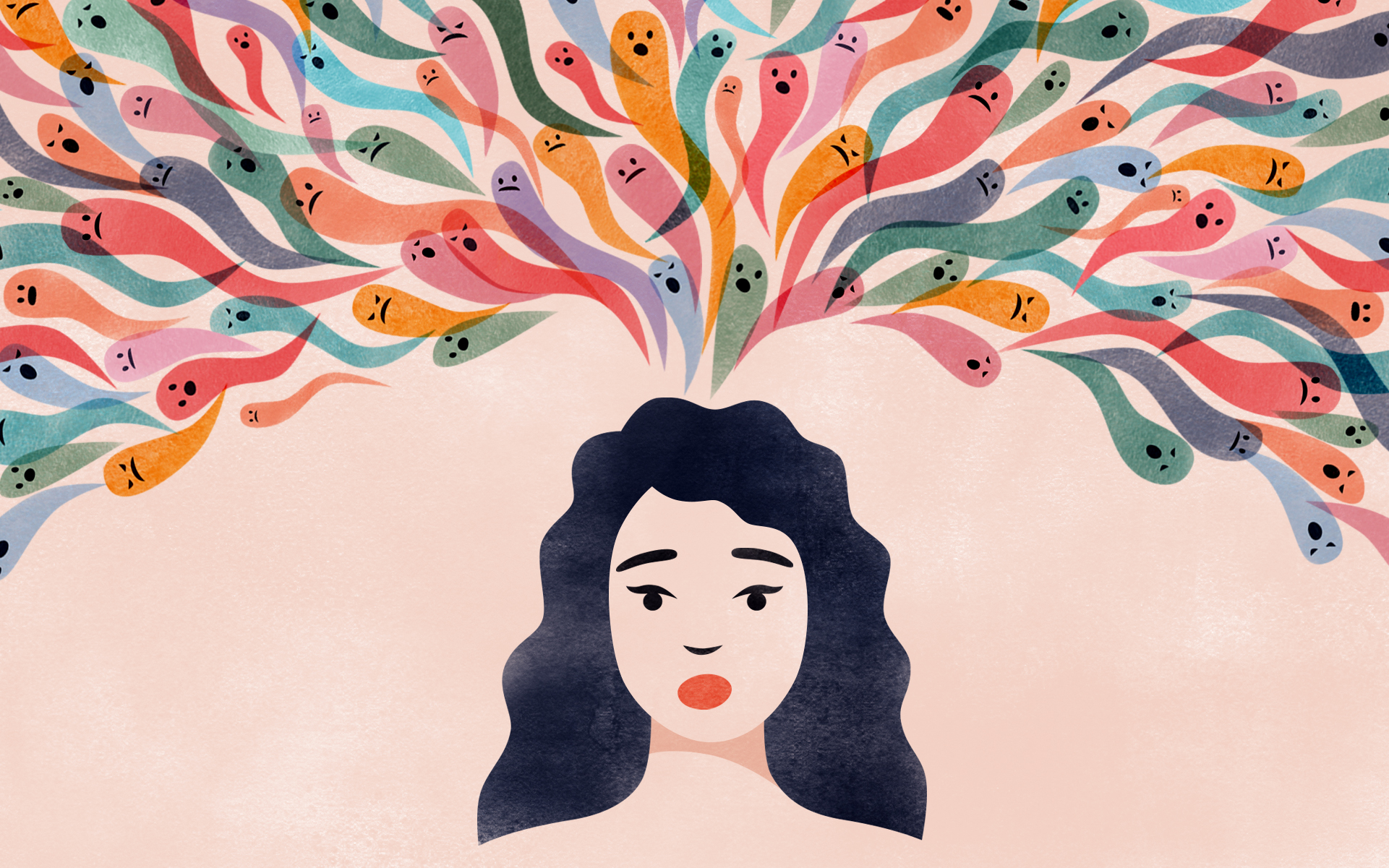

being emotional or experiencing general nervousness.Some personality traits may put a person at greater risk of GAD, including:
 other traumatic childhood experiences, such as the death of or separation from a parent. the breakdown or loss of a close relationship. You may be more at risk if you’ve experienced a major life change or trauma. This doesn’t mean that a person will definitely develop anxiety if a parent or close relative has had a mental health condition. People with GAD often have a history of mental health conditions in their family. Some changes in brain functioning have been associated with GAD. It can occur at any time in life and is common in all age groups, including children and older people, although on average it The condition tends to affect more women than men. Often, a combination of factors may be involved in the development of GAD. It’s sometimes called the “K10” and is widely used by GPs and mental health professionals. It’s an evidence-based tool which asks you 10 questions about the feelings you’ve been having over the past 4 weeks. Our anonymous mental health check-in can help you understand whether your anxious feelings are the kind of worries that will go away on their own, or whether it’s time to get more support to help you feel better. You may be feeling unsure about whether you should seek support. antidepressant medication – for severe GAD. online therapies (also known as ‘e-therapies’ or ‘computer-aided psychological therapy’. Research shows that the most effective treatments for GAD are: have physical health problems such as headaches or bowel complaints.Įffective treatments for generalised anxietyĮvidence-based support is available. It’s also common to have both GAD and depression. If you have GAD you may also have other anxiety conditions such as social anxiety. Other conditions related to generalised anxiety Read Healthy Families’ Strategies to support anxious children. seek regular and frequent approval and assurance from parents, teachers, siblings or friendsįind information and support for managing anxiety in children. If you think you may have GAD we can help you find the support you need at Get mental health support.Ĭhildren with GAD often worry about performance at school or sporting events, punctuality, natural disasters or war.
other traumatic childhood experiences, such as the death of or separation from a parent. the breakdown or loss of a close relationship. You may be more at risk if you’ve experienced a major life change or trauma. This doesn’t mean that a person will definitely develop anxiety if a parent or close relative has had a mental health condition. People with GAD often have a history of mental health conditions in their family. Some changes in brain functioning have been associated with GAD. It can occur at any time in life and is common in all age groups, including children and older people, although on average it The condition tends to affect more women than men. Often, a combination of factors may be involved in the development of GAD. It’s sometimes called the “K10” and is widely used by GPs and mental health professionals. It’s an evidence-based tool which asks you 10 questions about the feelings you’ve been having over the past 4 weeks. Our anonymous mental health check-in can help you understand whether your anxious feelings are the kind of worries that will go away on their own, or whether it’s time to get more support to help you feel better. You may be feeling unsure about whether you should seek support. antidepressant medication – for severe GAD. online therapies (also known as ‘e-therapies’ or ‘computer-aided psychological therapy’. Research shows that the most effective treatments for GAD are: have physical health problems such as headaches or bowel complaints.Įffective treatments for generalised anxietyĮvidence-based support is available. It’s also common to have both GAD and depression. If you have GAD you may also have other anxiety conditions such as social anxiety. Other conditions related to generalised anxiety Read Healthy Families’ Strategies to support anxious children. seek regular and frequent approval and assurance from parents, teachers, siblings or friendsįind information and support for managing anxiety in children. If you think you may have GAD we can help you find the support you need at Get mental health support.Ĭhildren with GAD often worry about performance at school or sporting events, punctuality, natural disasters or war. 
had trouble sleeping (including difficulty falling or staying asleep or restless sleep)?.had muscle tension (such as jaw pain or a sore back).found it hard to do everyday activities because of your anxiety (for example, work, study, seeing friends and family)?ĭid you answer yes to all of these questions? You might have GAD if you’ve also experienced three or more of the following:.felt very worried about one or more event or activity.The checklist below can help you decide whether you need to take the next step and seek support.įor six months or more, on more days than not, have you: Only a GP, psychologist or psychiatrist can diagnose generalised anxiety disorder. You might even describe yourself as having always been ‘a worrier’. If you have GAD you might know that you’ve had a tendency to worry for a long time. the symptoms last for at least six months.the symptoms cause significant distress or make it hard to do everyday activities like working, studying or socialising.you experience the symptoms listed on this page on more days than not.
General thoughts on anxiety professional#
That’s an expected part of life and doesn’t necessarily mean you have an anxiety condition.Ī mental health professional may diagnose GAD if: Signs and symptoms of generalised anxiety
around 4 per cent experience GAD in any 12-month period. around 6 per cent of Australians experience GAD during their lifetime.







 0 kommentar(er)
0 kommentar(er)
